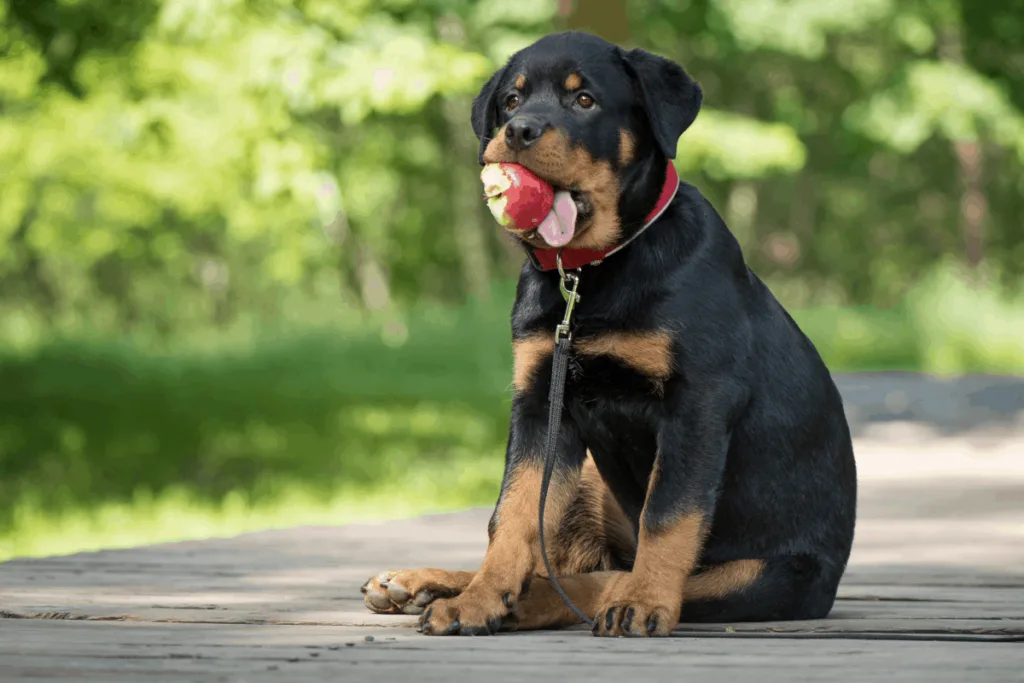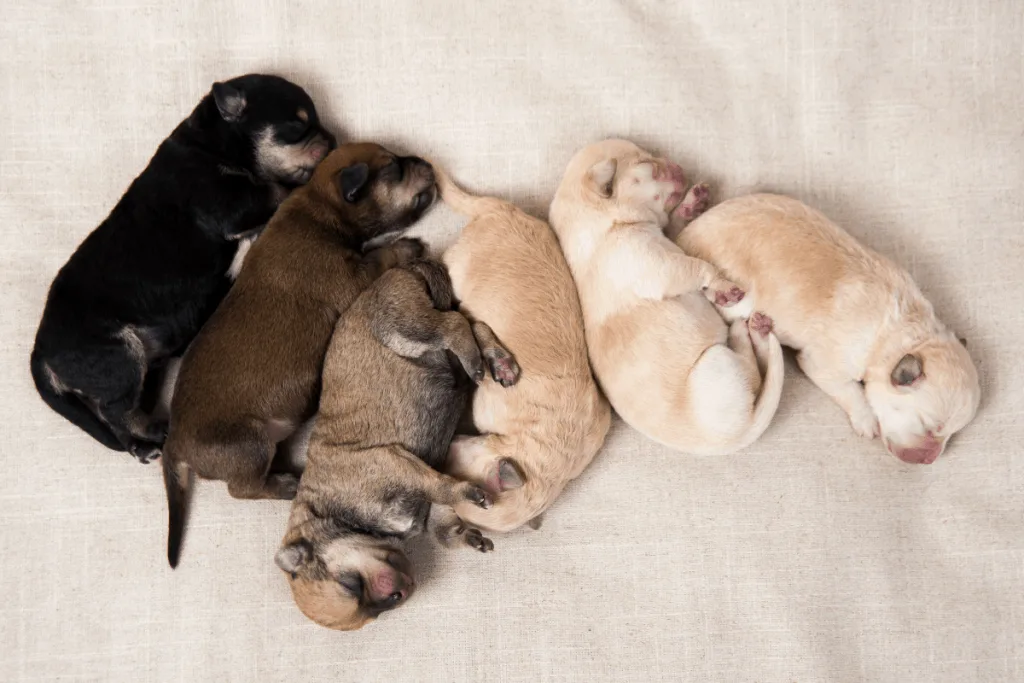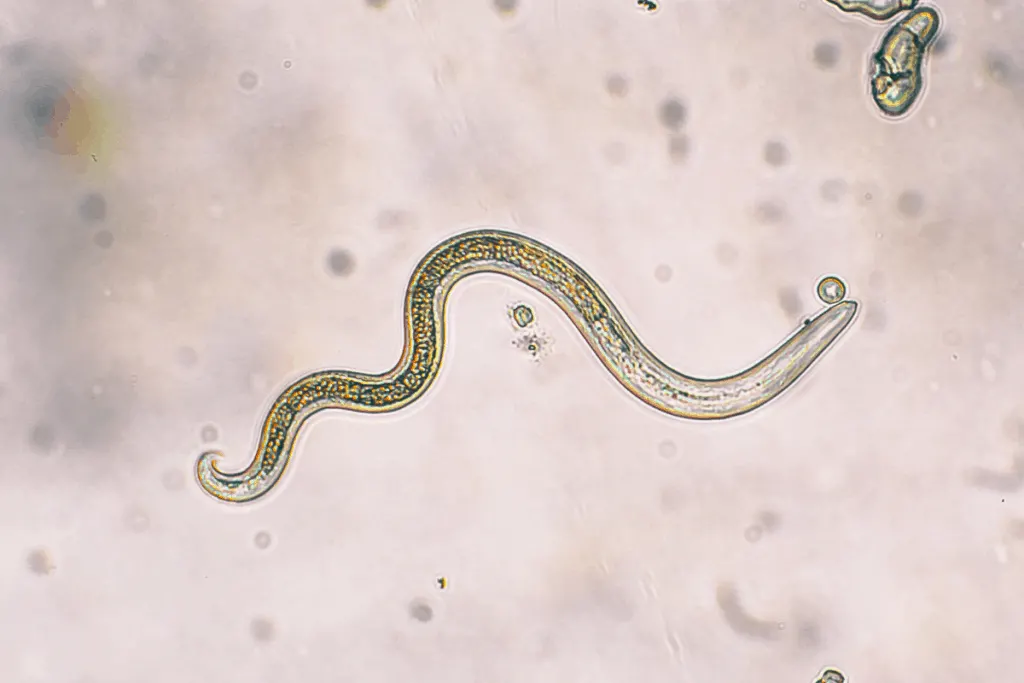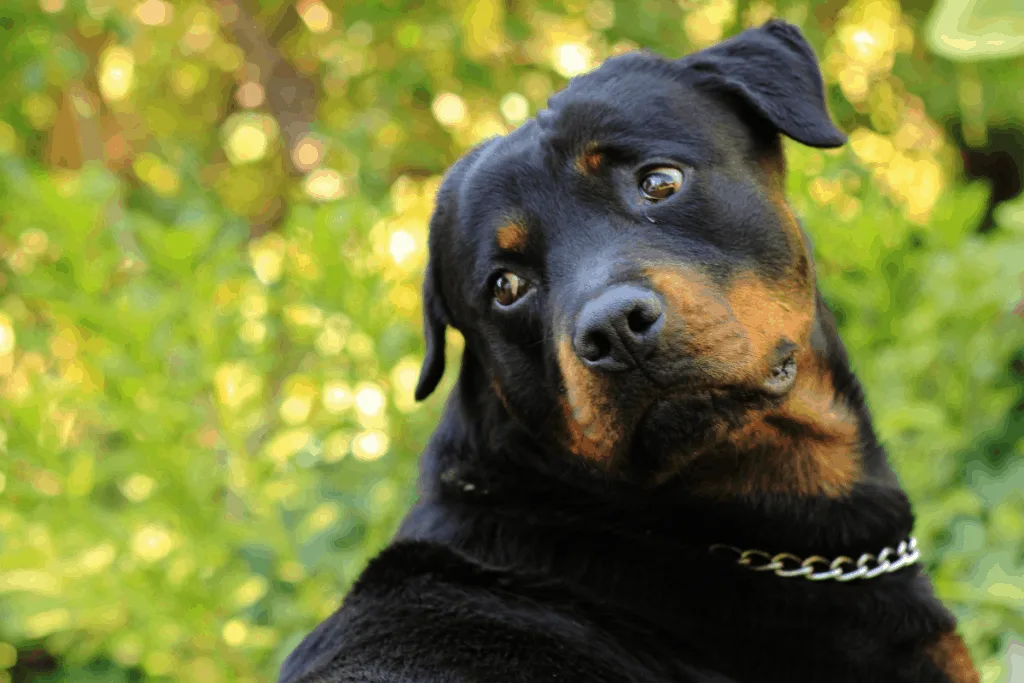
You know that Rottweilers are massive dogs, so when they stop growing before they reach their breed standard size, it can be concerning.
But what would cause a Rottweiler to stop growing prematurely, and is it a problem?
Your Rottweiler puppy may have stopped growing sooner than expected because they had a difficult start in life. Poor genetics, incorrect nutrition and exercise, parasitic worms, thyroid diseases, gastrointestinal disorders, and early sterilization can all stunt growth.
Below we discuss the average sizes of male and female Rottweilers, the normal age for a Rottweiler to stop growing, and we also discuss some reasons why they would stop growing before they reach these sizes or age.
Click Here to Jump to a Section
When Do Rottweilers Stop Growing?
Rottweilers are classified as a giant or extra-large breed of dogs. This means that they take much longer than a small dog to reach their final size and maturity.
Related: Are Rottweilers Bully Breeds? The Real Story
Furthermore, they take longer to reach their full size because their joints and muscles have to develop more slowly in order to prevent problems and ensure that their frames are strong enough to carry them.
This is a natural evolution, and it’s not just seen in Rottweilers; all large dogs take longer to grow.
Related: German Shepherd Weight And Growth Chart: Puppy To Adult
Your Rottweiler will only be considered a fully grown adult when they are about 18 months to two years old (probably closer to two years).
In fact, it is not uncommon for Rottweilers to grow a little more even after the age of two years.
How Big Is a Fully Grown Adult Rottweiler?
According to the American Kennel Club’s breed standard, a male Rottweiler is considered to be fully grown when he weighs between 95 and 135 pounds and stands 24 to 27 inches tall.
A female Rottweiler is considered to be fully grown when she weighs between 80 and 100 pounds and stands between 22 and 25 inches tall.
Has Your Rottweiler Puppy Stopped Growing, or Has the Growth Rate Just Slowed Down?
As Rottweilers take such a long time to grow, they can go through stages where it seems as if they have stopped growing altogether, when in reality, their growth rate has just slowed down.
The fastest growth takes place over the first three months of a Rottweiler’s life.
During these three months, you will notice significant weekly increases in height and weight. Another growth spurt will probably happen at around six months.
If your Rottweiler has not grown in a week or two, then do not jump to the conclusion that something is wrong unless they are showing other signs of illness.
The chances are that nothing is amiss; just give it another two to three weeks.
If, however, you still see no change after this time, then there may be a problem, and you should address it with your Rottweiler’s veterinarian.
Where Did You Get Your Rottweiler Puppy?

Where you get your Rottweiler puppy from can influence their growth. But how?
The following two scenarios describe how your puppy’s origins can lead to stunted growth.
However, you should note that these circumstances do not necessarily mean that your Rottweiler is unhealthy just because they are smaller.
Did Your Rottweiler Have a Rough Start in Life?
If you rescue a Rottweiler puppy, then they might have had a rough start in life.
Lack of proper nutrition, especially during those crucial first three months of life, as well as physical and emotional stress, can end up stunt a Rottweiler puppy’s growth either temporarily or permanently.
If the Rottweiler puppy’s growth has been stunted temporarily, then the puppy might simply take a few weeks to become healthy enough to start putting on weight, but then you will likely see a growth spurt that will catch them up to where they need to be.
If the stunting is permanent, then your Rottweiler puppy might never reach the breed standard size, even if their genetics are perfect.
Sometimes, the rescue organizations know most of the puppy’s history, especially if the puppy was found when it was younger, and other times it is a complete mystery.
If you are taken by surprise by your Rottweiler’s lack of growth, it may well have to do with something from their past that you may not be aware of if you do not have your dog’s full history available to you.
Does Your Rottweiler Have Good Genes?
If you rescue your Rottweiler puppy, then the chances are high that they do not have a genetic profile that fits the breed standard.
This means that they can end up being smaller than what is considered to be normal for a Rottweiler.
As mentioned previously, these genes do not necessarily mean that they are unhealthy; just that they are never going to grow as big as was expected.
Furthermore, your dog may look like a Rottweiler puppy, but they may actually be a mixed breed.
If the other breed or breeds that contribute to your Rottweiler’s genetic make-up belong to a smaller dog, then your Rottweiler may also stop growing sooner than you expected them to.
Unless you have papers for you Rottweiler, there will be no way for you to tell whether or not your dog has purebred genes outside of observation as they grow up.
Beware of Backyard Breeders
Poor genetics or mixed genetics are not only an issue when you rescue Rottweilers. They are also potential issues in “purebred” Rottweilers who are purchased from what are known as backyard breeders.
These are breeders who breed for gain only—out of greed or ignorance—and they do not consider the effects of genetics.
They disregard the breeding standards and often even use other breeds and mixed-breed Rottweilers to produce litters.
If you are buying a Rottweiler, always seek out a breeder who has bred before and has a good reputation, even if it costs more.
It’s not just about the status of getting a purebred Rottweiler or one that is going to grow big. Backyard-bred Rottweilers are often unhealthy and are more likely to have bad temperaments (perpetuating the lie that Rottweilers are aggressive).
You can go onto the American Kennel Club’s website and get a list of the breeders who are registered with them.
Is Your Rottweiler Puppy Receiving the Right Nutrition and Exercise?
You need to make sure that you are feeding your Rottweiler puppy a well-balanced diet and providing them with exercise.
Too much exercise can result in them burning off too many calories or damaging their joints, which can lead to stunted growth.
On the other hand, exercising also encourages bone and muscle growth. It’s all about the balance between the two.
Too little food or poor-quality food can also lead to stunted growth, so make sure that you feed your Rottweiler puppy the recommended amount of high-quality dog food.
You will also need to adjust the food quantity as your Rottweiler goes through growth spurts (puppies need more food during a growth spurt).
Puppy formula food is best, but an all-stages food is not necessarily going to lead to poor nutrition as long as it is of high quality and you feed your Rottweiler puppy the correct amount.
It should be noted that in most cases, only malnutrition or over-exercising that reaches neglectful or abusive levels is likely to cause stunted growth in a Rottweiler puppy.
However, there are exceptions and also situations in which poor diet is compounded by other factors.
So, it is still possible for your well-cared for Rottweiler to be suffering from malnutrition.
Should You Give Your Rottweiler Puppy Supplements if They Stop Growing?
You have to be very careful with puppy dietary supplements.
Remember that your Rottweiler grows slowly for a reason, and supplements can lead to excess or too rapid growth and can cause joint problems.
If you think that your Rottweiler puppy could benefit from a supplement, be sure to read this excellent article that we have written for you:
The 5 Best Supplements For Rottweiler Puppies
However, remember that it is important to contact your veterinarian before you start your Rottweiler on any new food or supplement regimen.
Medical Conditions Can Stunt Growth in Rottweilers

Below we will go through just some of the medical conditions that can stunt your Rottweiler’s growth.
It is important that you do not use the information that we provide to diagnose your dog – instead use it only as a guideline and contact your veterinarian if you suspect that your pup is experiencing a medical condition.
Your Rottweiler Puppy May Be Infected with Parasitic Worms
The most obvious medical condition that can stunt your Rottweiler puppy’s growth is the presence of parasitic worms, specifically intestinal worms.
These are really common in America and relatively easy to treat once correctly diagnosed.
So, for intestinal worms to lead to stunted growth requires a severe or long-undiagnosed case.
Intestinal worms absorb all the nutrients in your dog’s food themselves, block the intestinal membranes to prevent absorption of nutrients by the Rottweiler’s body, or cause destruction of the absorptive surfaces.
Ultimately, this leads to malnutrition, which can stunt growth.
Additionally, where the parasites cause damage, the body uses its resources to try to heal the damage, which takes away from what can be used for growth.
If your Rottweiler puppy has worms, they can not only stop growing, but they will also eventually start to lose weight if the infection is not addressed.
Roundworms, hookworms, whipworms, and tapeworms are all common parasitic infections that can affect your puppy.
Your Rottweiler Puppy Might Have Congenital Hypothyroidism
This is a very rare congenital (hereditary) disorder in which the thyroid does not produce sufficient thyroid hormones, or the body is unresponsive to these hormones.
One of the major clinical signs of this congenital hypothyroidism is abnormal skeletal development, which results in disproportionate dwarfism.
So, your Rottweiler won’t just be a little smaller than expected, it will be much smaller, and it will look deformed in some way.
You may also want to read: Dwarf German Shepherd: All About This Genetic Disorder
If you Rottweiler has congenital hypothyroidism, they will also show signs of mental impairment, and they may have a goiter.
Your Rottweiler Puppy Might Have Lymphocytic Thyroiditis
Lymphocytic thyroiditis is an autoimmune condition that affects the thyroid gland, and it is much more common than congenital hypothyroidism.
It can also stunt growth in your Rottweiler, so it is an important condition to be aware of.
Your Rottweiler Puppy Might Suffer From Intestinal Malabsorption and Overgrowth of Bacteria
Sometimes, the intestinal bacteria in Rottweilers can become overgrown.
Excess intestinal bacterial causes damage to the absorptive surfaces.
So, your Rottweiler can eat as much high-quality food as it should be but still lose weight because the body is not absorbing any of the nutrients.
Over time, this condition can stunt the Rottweiler’s growth.
Related: Why is my German Shepherd Puppy so Skinny?
Health Conditions That Cause Loss of Appetite
Any health condition with the potential to cause prolonged or recurring loss of appetite can affect the nutritional intake of a Rottweiler puppy and thereby lead to impaired growth.
Because of this, it is important to keep an eye on your Rottweiler’s eating habits. Doing so may allow you to react to the situation before it reaches a point of your pup looking malnourished.
Early Sterilization Can Stunt a Rottweiler’s Growth

When humans are sterilized, the testes and ovaries are left intact and available to produce hormones.
However, when male Rottweilers are neutered, the testes are removed, and when female Rottweilers are spayed, the ovaries are removed.
But how can this lead to stunted growth?
Well, sex hormones are one of the major contributing factors to healthy bone and muscle development in growing Rottweiler puppies.
The testes and ovaries are not the only producers of sex hormones in the dog’s body. However, they are the primary source, and removal means that the levels of sex hormones in the Rottweiler’s body are too low to support healthy growth.
Not only can their size be stunted, but Rottweilers who are sterilized too early can develop a number of joint disorders.
Usually, veterinarians will recommend waiting until a Rottweiler is fully matured at 18 to 24 months old before sterilizing them.
However, in some cases, early sterilization is unavoidable.
Be sure to read this article that we’ve written for you – it will give you some important insights around the topic of sterilizing your Rottweiler:
Neutering A Rottweiler: The Honest Pros And Cons
Typically, rescued dogs will be sterilized before they are released to a new family (depending on the dog’s age), but more often than not, these dogs are sterilized earlier.
Other dogs can develop cancer or other medical conditions which necessitate early removal of the testes or ovaries.
If in Doubt, See Your Veterinarian
Home research, such as that which led you to this article, is an absolutely fantastic first step.
However, there is always the possibility of your research leading you to an incorrect “diagnosis” of what could be wrong with your Rottweiler puppy.
You can attribute their stunted growth to genes when, in fact, they are suffering from a medical condition.
Or you can scare yourself thinking that they are extremely ill when they are only between growth spurts.
Neither makes you a bad owner, but because of these possibilities, if you are concerned at all about the rate at which your Rottweiler puppy is growing, it is advisable to book them in for an appointment with your local veterinarian.
Final Thoughts
Sometimes, it only appears as if your Rottweiler has stopped growing. This is because Rottweilers actually grow very slowly (except for the occasional growth spurt).
Slow growth is essential for healthy development in these giant dogs.
Additionally, genes play an important role in the ultimate size of a Rottweiler.
The expected size of a Rottweiler is based on the average height and weight of dogs with a certain genetic purity or standard.
If your Rottweiler’s parents did not meet the breed standard size, or if your Rottweiler is actually mixed with a smaller breed, then it has the potential to be smaller as well.
Improper nutrition and exercise are also contributing factors to stunted growth.
Still, the level of malnutrition or over-exercise that can significantly affect growth is actually only really possible through neglect.
However, you should still prioritize high-quality food and proper portion sizes as well as avoid excessive exercise during the first two years of the Rottweiler’s life.
Various medical conditions, including thyroid issues and gastrointestinal disorders that affect nutrient absorption, can ultimately lead to stunted growth in Rottweilers, as can early sterilization.
If a medical condition is the cause of your dog’s stunted growth, you will most probably observe other clinical signs of illness.
If you are concerned that your Rottweiler has stopped growing, then the best course of action is to seek help from a trusted veterinarian.
